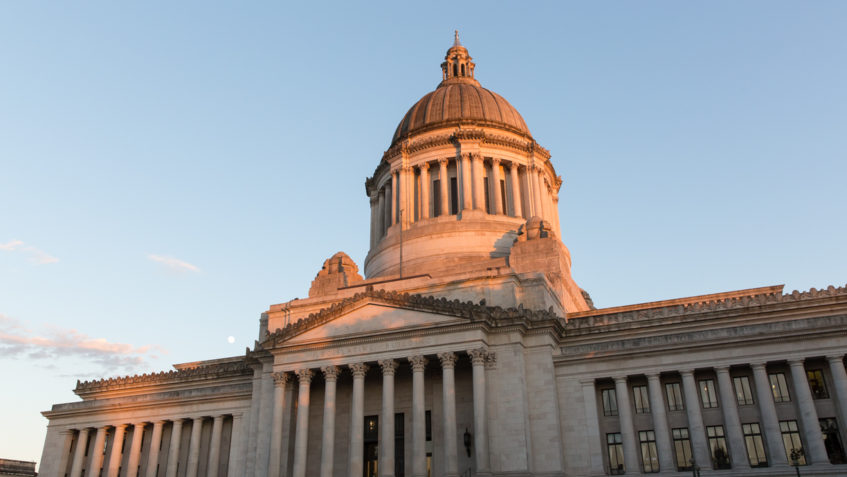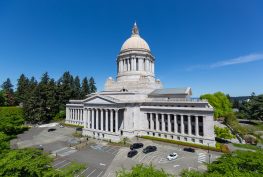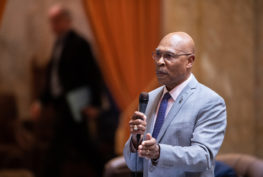Washington’s tax structure is broken. Lower and middle-income families pay nearly 18 percent of their total income in taxes, while the very wealthiest Washingtonians pay just 3 percent.
The Evergreen State’s tax structure consistently ranks dead last in terms of fairness. It’s with this in mind that Senate Majority Leader Andy Billig and others introduced a striking amendment to Senate Bill 5961 today to help fix Washington’s tax code.
“While we know we must do more to fix our upside-down tax structure, this would represent modest but concrete progress,” Billig said. “Our existing tax system disproportionately burdens the middle class and vulnerable households living paycheck to paycheck, which is the majority of households in our state.”
The proposal creates a capital gains tax that would impact approximately 8,000 of the wealthiest Washingtonians while offering tax relief to the vast majority of lower- and middle-class families in the state.
Washington is one of only nine states that give the ultra-wealthy a pass on capital gains taxes. Under the Senate proposal, if someone turns a profit of more than $250,000 on the sale of stocks, bonds, commercial real estate, or a large business, they will pay a tax of 8.9 percent on the profits above that threshold.
Revenue generated by the capital gains tax would be used to provide tax reductions for less wealthy Washingtonians. Under the bill, expected revenues of $780 million starting in 2021 would fund:
- Working Families Tax Credit ($220 M): A tax break for 400,000 of the state’s most underprivileged families – phase-outs begin when income is greater than $19,000 per year.
- Small businesses tax cut ($260 M): Up to $3,000 in B&O tax relief for businesses grossing less than $2.5 million in revenue annually. This would apply to approximately 350,000 – or 90 percent – of Washington small businesses.
- Senior property tax reduction ($15 M): A property tax reduction for approximately 21,000 households to help senior citizens with economic and housing stability.
- Eliminate sales tax on certain products ($235 M): Sales tax ended on diapers, medical and mobility equipment, feminine hygiene products and over-the-counter medications.
“Taxes are an investment we make together to pay for good schools, clean air and water, safe neighborhoods and countless other necessities every single one of us needs. It’s a good deal but we are not paying for it in a smart or balanced way,” Billig said. “Those that can least afford it are asked to carry an outsized share of the tax burden. This common sense plan will help fix our broken tax structure.”




